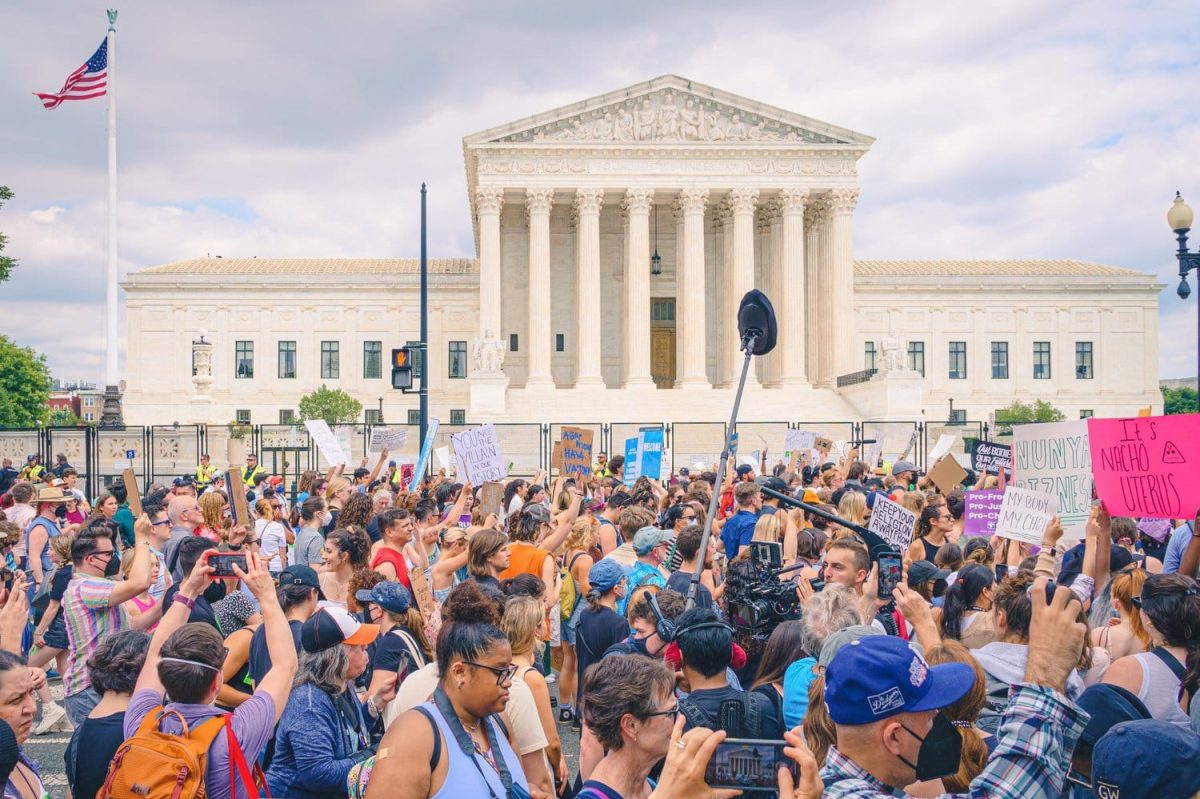This article was last updated on November 27, 2023. There may have been developments that may have occurred between this article’s last revision. This article is similar to the print article, yet is being continuously updated online.
What’s going on?
Since October 7, Israel has been in a state of war against Hamas, an Islamist militant organization governing the Gaza Strip in Palestine. Hamas began the war on the morning of October 7 by invading Israel and raiding the settlements on the border. In the initial invasion, roughly 1,2000 people were killed and an additional 240 were taken hostage. 27 Americans were killed in the attack, with a further 14 taken hostage or missing.
Israel responded by retaliating with strikes of their own, with Prime Minister Netanyahu declaring war on Hamas. Israel has imposed a blockade on Gaza, cutting off all supplies of food, water, and energy, besides a single humanitarian corridor near the Egyptian border. Israel ordered the evacuation of northern Gaza, displacing 1.1 Million people, roughly half of Gaza’s population, and then invaded the Gaza Strip on October 27, particularly aiming to capture Gaza City.
The fighting in Gaza City has become increasingly destructive. More than half of the buildings in Gaza City have been destroyed and the population has struggled to access food, water, and fuel. The Hamas-controlled Gaza Health Ministry has claimed that more than 11,000 Palestinians have been killed so far. Much of the casualties can be attributed to Hamas’ strategy of putting bases in or near civilian areas, in particular hospitals.
The United States has declared its full support for Israel. President Joe Biden declared the attacks “pure, unadulterated evil,” but has also cautioned Israel “not to be blinded by rage.” Biden and Secretary of State Blinken have traveled to Israel to affirm support and promise military aid. Biden has prioritized the return of hostages to their home countries, exerting pressure through the efforts of American diplomats and frequent calls with Prime Minister Netanyahu. The United States has also sent an aircraft carrier group to patrol the region, deterring escalation from outside powers.
A military aid package is in the works, but disagreements between the Democratic-controlled Senate and Republican House of Representatives have slowed its progress. Democrats have supported a large package that combines Israeli military aid with humanitarian aid to Palestinians and additional military aid to other American allies, including Ukraine and Taiwan. Republicans, primarily in the house, support a much narrower package, which transfers funding from the IRS into Israeli military aid, with no aid given to other countries. These disagreements, along with the current budget crisis, make a final package difficult to pass in Washington, although both parties agree that Israel needs support to fight Hamas.
Since Friday, November 24, a ceasefire has been in place in order to facilitate an exchange of people between Hamas and Israel. This deal has been in the works since the beginning of the conflict and has been largely facilitated through Qatar and Egypt as intermediaries and a “secret cell” of American diplomats as the dealmakers. Hamas has agreed to return 50 Israeli and international hostages in return for the release of 150 Palestinian political prisoners in Israel.
Although the ceasefire was originally intended to last until November 27th, it has been extended two days, possibly to facilitate the exchange of even more hostages. This sudden de-escalation has brought hope to the region, particularly to the Palestinian civilians in Gaza, who at the very least have received needed reprieve from bombing and easier access to humanitarian aid.
Why does this matter?
This war is the largest flare-up in the Israel-Palestine conflict since the 1973 Yom Kippur War and shows no signs of ending soon. Israel has committed itself to destroying Hamas and has invaded Gaza, a step not taken since the 1967 Six-Day War. This sudden escalation in the conflict could mean the deaths of thousands and the displacement of hundreds of thousands.
This war may have large effects on the Israeli domestic situation. Since January, Israel has been in turmoil over a political crisis surrounding Netanyahu’s plan to curtail the power of Israel’s supreme court. The government’s handling of the war could significantly change the political environment of Israel.
The war has disrupted the process of normalization between Israel and Saudi Arabia. Although the states are aligned through their mutual ties to the United States, the conflict makes it much harder politically for Saudi Arabia to make an alliance with Israel.
The war also presents a possible flashpoint between Israel and its regional rivals: Syria and Iran. Hamas is often considered a proxy for Iran in the region, as is Hezbollah, to Israel’s northern border in Lebanon. There is a real risk of Iran and its proxies getting more involved in the war. The conflict also may be an opportunity for Syria, as they could possibly invade Israel to take back the Golan Heights, a region of Syria that has been occupied since 1967.
For the United States, this war comes at a time of unique internal divisions. First, the war in Israel may complicate American support for Ukraine, as seen in the issues over the aid bill. It has also become a major point of disagreement in the 2024 Presidential campaigns, particularly in the Republican party. Lastly, it exacerbates tensions between the Jewish-American and Arab-American communities in America and has sparked senseless violence between and against both groups. Anti-Muslim and anti-Jewish incidences, rhetoric, and hate crimes have increased massively since the conflicts. The most tragic of these crimes includes the murder of a Palestinian-American child in Chicago.
Protests have occurred across the United States over a multitude of issues and on both sides of the conflict. Pro-Israeli groups have protested in New York and Washington and have largely advocated for aid to Israel and pressure to free hostages. Pro-Palestinian groups have also protested, particularly advocating for an immediate ceasefire in Gaza, but more broadly protesting the Israeli state.
One of the most significant controversies in the United States in the light of the conflict has been over free speech, particularly on college campuses. Both Jewish and Arab students have been attacked or threatened on campus and have been the site of large protests, particularly by pro-Palestinian student organizations. Universities have been put under large amounts of pressure to respond, with many outright banning some pro-Palestinian organizations, including Columbia, Florida, and George Washington University.






